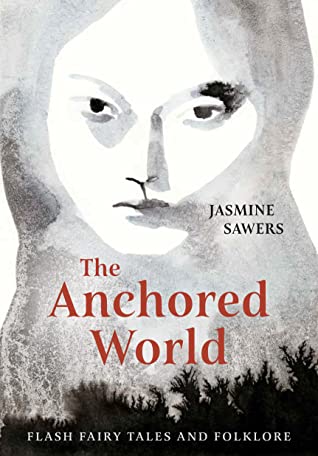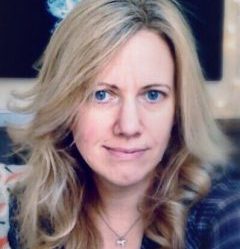
Reviewed by Helen Rye
The opening story in The Anchored World, “Still Life With Conch Shell,” sets the tone for this collection with a visceral fairy tale. A princess gives birth to a smooth, perfect shell and is made an outcast while still bleeding. The shell sings to her and she bonds with it, until it splits and reveals a golden human baby, who she knows will become a fighter and a conqueror—part of that society which rejected her.
Without being told, we feel for the mother regarding the laid-out future of a child whose destiny is controlled by its surrounding culture, for the injustice of patriarchal demands, for other things that aren’t easily articulated. Ursula Le Guin talks about fiction being something that “says in words what cannot be said in words.” Speaking to issues through and between the lines threads through these 33 stories; in particular through “All Your Fragile History,” a deeply personal one-sentence piece that is by turns poetic, prosaic, funny, devastating.
I’ve read “All Your Fragile History” at least a dozen times, probably more, since it first came up in the queue at SmokeLong. Every time it makes me laugh, then tears me apart with a sort of precision brutality. This is a rare feat, given how many stories I read, and Sawers is a writer of great skill, but I think the clue to the story’s power—as well as that of the whole collection—lies in this statement from Sawers’ afterword: “When I peered into the gaps between scenes, between reader and page, between my reality and that of any given character, it became imperative that I fill them in with my own beating heart.” It’s that rhythm that enlivens this collection, suffusing cross-cultural myths with realist blood so that they speak through archetypal characters that look suddenly different than we’re used to—like people much closer to home.
And there is plenty of humor. “Your dog will find you tedious” is one of a range of “Domestic Curses for All Occasions”–much less crass, we are told, than the workaday boils of your regular, off-the-peg curse. Elsewhere, we confront the tricky issue of the correct environment for a cohabiting Sasquatch and gnome.
Love has its place, too: via semaphore between two guardsmen posted on opposite hills, between a woman whose body blooms with all the colours of every experience she has had and a girl who is pure sunshine.
A statement from Synergy Cooperative HousingTM in one story regarding an unusual infestation (goblins, the shrunken child next door) is a good analogy for the harmonious parallel universes of this collection: “Sure, there’s a bit of scurrying in the thin hours when the world is least real, but usually nothing so dire as to wake you…you don’t just get used to them sharing the space; you come to enjoy them.” In this book the real world and the fairy tale co-exist at a point where the divide becomes vanishingly thin; it feels as if they belong together.
In many places, Sawers repurposes pervasive western fairy tales, subverting underlying cultural messages in a sort of quiet, counter-Disney revolution. We see it in the raw telling of Rapunzel’s desire and abandonment and forging of a future for her child; in language as savage and luscious as the wild forest itself; in the mother sharpening a meat cleaver, determined one of her girls will fit the glass slipper. We see it in the prince who, grown tired of the delicacy of the princess he’d insisted on by way of the pea, turns his thoughts to the chambermaid and how she might bruise.
“On a good day, I am a person,” says a bereft man in whose left ventricle a goat has taken up residence. Immersed in these stories, this feels a relatable, universal statement. In our better moments we fight in ourselves, as best we can, some of the same battles that underline these stories; on a good day, we are people—and so with the inhabitants of these tales. Reading about them somehow makes it a bit less lonely.
“Storytelling is powerful magic. Under its auspices writers become witches,” writes Sawers. Sawers is a witch. This collection is spellbinding.
The Anchored World: Flash Fairy Tales and Folklore is available from Rose Metal Press.
____________________________
 Helen Rye lives in Norwich, UK. She has won the Bath Flash Fiction Award, the Reflex Fiction contest and third place in the Bristol Short Story Prize. Her stories appear in The Best Small Fictions 2020 and have been shortlisted for the Bridport Prize, nominated for The Pushcart Prize and published in many journals and anthologies. She has an MA in Prose Fiction from the University of East Anglia, where she was the 2019/20 Annabel Abbs Scholar.
Helen Rye lives in Norwich, UK. She has won the Bath Flash Fiction Award, the Reflex Fiction contest and third place in the Bristol Short Story Prize. Her stories appear in The Best Small Fictions 2020 and have been shortlisted for the Bridport Prize, nominated for The Pushcart Prize and published in many journals and anthologies. She has an MA in Prose Fiction from the University of East Anglia, where she was the 2019/20 Annabel Abbs Scholar.
